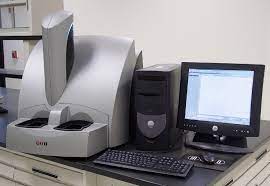Know The Basics: Using Meso Scale Discovery ELISA Assay For Immunogenicity Testing

If we picture a flowchart of the drug development process, immunogenicity testing will form a crucial component in the drug development cycle. Hence, there are stringent regulations for developing and validating anti-drug antibody assays. Regulatory bodies recommend these assays be more robust and tolerant. Over the years Meso Scale Discovery (MSD) platform has gained prominence for testing immunogenicity in biopharmaceutical development.
The Meso Scale Discovery immunoassay employs electrochemiluminescence and Sulfo-Tag technology to detect multiple analytes in complex biological matrices. Some characteristic features of msd elisa and MSD PK assays include:
- High signal to background ratio and minimal background signals: the electrochemical stimulation is decoupled from the signal
- Proximity: only analytes close to the electrode are detected
- Flexibility: Sulfo-Tags are non-reactive, stable, and are conveniently conjugated to the molecule
- Has no color quenching issue
- Signal amplification: multiple excitation cycles enhance assay sensitivity.
MSD technology can be used for a broad range of drug products, including antibodies, proteins, humanized antibodies, peptides, and reliable reagents to provide rapid assay development and validation. Let us dive deep into the working of MSD assay for immunogenicity testing.
Meso Scale Discovery assay for immunogenicity testing
Due to increased sensitivity, greater therapeutic tolerance, and broad dynamic range, MSDs multiarray technology has become the preferred choice for studying ADA testing. Besides, MSD provides support at every step of immunogenicity testing. Some features of MSD assays include:
- Enhanced sensitivity in detecting high and low-affinity anti-drug antibodies
- Superior intra and inter-assay precision
- Flexible MSD platform supporting most assay protocols
- Minimal matrix interference
- Wide dynamic range, and hence no sample dilutions are needed
- And high drug tolerance. Therefore, decreased interference from anti-drug antibody complexes.
Immunogenicity products
Besides, MSD has a plethora of assay development kits, reagents, and plates for every phase of drug development. These assay options are rigorously tested for precision and reproducibility, with demonstrated inter-lot and intra-lot consistency. MSD immunogenicity products include:
- MSD GOLD Streptavidin Plates: Industry-standard plates for assay consistency, convenience, and performance.
- MSD GOLD Read Buffer: Ready to use buffer for greater lot-to-lot consistency.
- MSD GOLD Sulfo-Tag Conjugates: stable and easy to prepare for sensitive analyte detection.
- ELISA Conversion packs and U-Plex development packs: Extensive assay development tools for customized immunoassays.
Immunogenicity services
Besides robust products, MSD also provides immunogenicity solutions. These solutions include conjugated antibodies, custom assay plates, and neutralizing antibodies. A brief overview of MSD immunogenicity services is as follows:
- Assay development: Customers can utilize MSD’s experienced scientists for developing robust immunogenicity assays.
- Prototype printing: MSD designs custom ready-to-use plates printed with the material of choice.
- Conjugation: MSD also provides custom conjugation with either Sulfo-Tag or biotin for immunogenicity analysis. Moreover, they characterize assay conjugates and provide certificates of analysis.
Immunogenicity guidelines
The US FDA recommends a multi-tier approach to monitoring large-scale immunogenicity tests in a drug development project. Besides, initial immunogenicity testing must be sensitive enough to detect low levels of anti-drug antibodies. Positive results must then be confirmed to eliminate any false-positive results. Finally, researchers must perform additional studies, including neutralizing antibody assays to characterize anti-drug antibodies and distinguish their functionality.